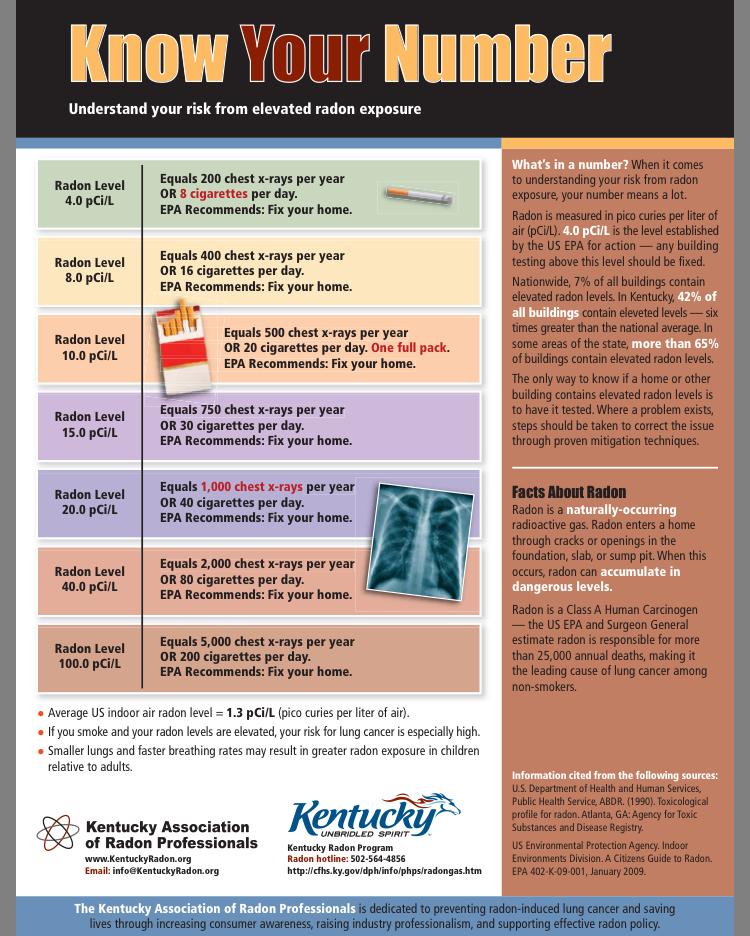Radon: Resources for Residents
Here’s a vital question whether you own or rent your home: What is your radon number?
Radon is measured in picocuries per liter of air. Any building that measures 4.0 picocuries (pCi/L) or above for radon, a naturally occurring radioactive gas, needs attention. Even at 4.0 picocuries, your radon i equivalent to having 200 chest x-rays per year, or smoking eight cigarettes a day.
See the full-size Know Your Number graphic below.
Homeowners in Ferguson Township have reported numbers in the triple digits, and the levels can vary within the home.
According to the Pennsylvania Department of Environmental Protection (PA DEP), our state ranks among those with the highest incidence of radon nationwide; 40 percent of homes in Pennsylvania exceed acceptable radon levels, at 4.0 picocuries and above.
Odorless and invisible, radon is a radioactive gas from the breakdown of uranium in soil, rock and water that can enter your home through cracks in its foundation. It is a known human carcinogen and the second leading cause of lung cancer.
Because radon can vary from home to home within a zip code or neighborhood, the PA DEP recommends that residents not rely on test results in other homes. You can test your own home for radon using short-term or long-term do-it-yourself kits available for as little as $10 - $12, not including the $40 fee for test results. Kits are available at local hardware and building stores, as well as online.
Because radon levels can fluctuate from day to day, long-term test kits, which run from eight days to a year, are recommended over short-term test kits, which only measure levels from 3 to 7 days. A long-term test kit will give a truer reading of average daily levels. Short-term test kits may be used to monitor periodic changes in homes where average daily levels have already been measured using the long-term method.
You may also hire a state-certified testing company. A web search for this area turned up a list of local providers.
If you rent, please ask your landlord to confirm whether radon testing has been done in your home or building.
The PA DEP site advises residents what to do if your radon test results are high. Free test kits are available to families with newborn babies, as well as Pennsylvanians whose homes were found to have screening levels of more than 100 picocuries of radon. Learn more at this link.


